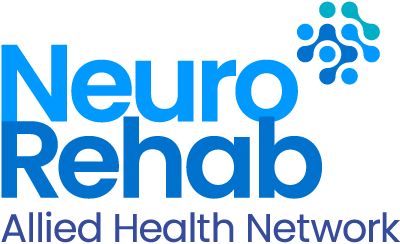Speech pathology
Speech pathologists work with individuals to improve communication and swallowing skills. There are many reasons why someone may have a communication or swallowing difficulty including acquired brain injuries such as stroke or traumatic brain injury, or progressive neurological conditions such as Parkinson’s disease or multiple sclerosis (MS). Communication and swallowing difficulties may also be present since childhood.
NDIS participants
can use
Core funding
for dysphagia
supports
Our speech and language therapy service specialises in:
- All aspects of speech and language
- Social communication
- Social integration and community connection
- Communication confidence
- Communication aids
- Working with others to improve communication supports
- Swallowing
Our speech pathologists can provide assessment and support for people with developmental and intellectual disabilities such as cerebral palsy, Down’s syndrome or autism. They work with individuals to empower them to make a meaningful difference in their lives. Through communication we connect with people.
Assessment, goal setting and rehabilitation is conducted in a client's home, at one of our clinics or in the community. Working with significant others (families or support workers) is an integral part of therapy to ensure our clients have the greatest opportunity to achieve their potential.
Speech therapy for stroke
Following a stroke, our speech pathologists focus on rebuilding communication abilities, such as speaking, understanding, reading and writing. Therapy also addresses swallowing difficulties (dysphagia) to ensure safe and enjoyable mealtimes, empowering individuals to regain independence and confidence.
Speech therapy for Parkinson’s disease
Speech pathologists work with people with Parkinson’s disease to strengthen vocal volume and clarity, addressing common challenges like reduced speech loudness. Therapy may include Lee Silverman Voice Treatment (LSVT Loud) which helps improve communication and quality of life.
Speech therapy for multiple sclerosis (MS)
For people with multiple sclerosis (MS), our speech pathologists address communication difficulties caused by weakness or coordination issues, helping to preserve voice strength and clarity. Our speech pathologists also manage swallowing challenges to ensure safety and comfort during meals.
Speech therapy for dementia
Our speech pathologists help individuals with dementia maintain communication skills, which are essential for expressing needs and staying socially connected. Our speech pathologists can assist with strategies to improve memory, simplify communication, and support swallowing safety, enhancing quality of life and reducing caregiver burden.
Speech therapy for aphasia
Our speech pathologists help people with aphasia improve their ability to express themselves and understand others, using strategies such as visual aids, repetition, and personalised communication tools. Therapists can help build confidence and facilitate meaningful social connections.
Speech therapy home and community visits
We provide speech therapy home or community visits within 15-25 km of our clinics in Bulleen, Deer Park, Melton, Thomastown, Tullamarine and Werribee. Our Albury clinic offers home or community visits, or telehealth services to surrounding areas, including Bright, Mount Beauty, Wangaratta, Henty, Wagga Wagga, Rutherglen, Yackandandah, Howlong, Chiltern, Tallangatta, Beechworth, Albury and Wodonga.
Enjoy personalised therapy in the comfort of your home, or via telehealth to suit your needs.
Useful resources
LSVT Loud® for Parkinson’s disease
Lee Silverman Voice Treatment (LSVT) Loud® is a specialised speech therapy program for people with Parkinson’s disease. It focuses on improving vocal loudness and clarity through structured, high-intensity exercises. The program helps individuals enhance their ability to communicate confidently and effectively in daily life, ensuring their voice is heard and understood. Click the link to download the flyer.
Improve your communication
We tend to think of communication as talking, gesturing, and using sign language, words and symbols. Our speech pathologists can help people find their voice through a range of communication strategies. Click the link to download the flyer.
Mealtime management and dysphagia
Dysphagia is the medical term for swallowing. Swallowing is something we do hundreds of times a day. Difficulties swallowing lead to serious health issues. Safe swallowing requires good coordination of multiple sensory messages and muscles. Click the link to download the flyer.
Videofluoroscopic swallow study
A videofluoroscopic swallow study (VFSS) is a moving x-ray of swallowing. Click the link to download the PDF flyer.
Supporting parents and fussy eaters
Tips for supporting your child’s sensory needs to make mealtimes less stressful. Click the link to download the flyer.














